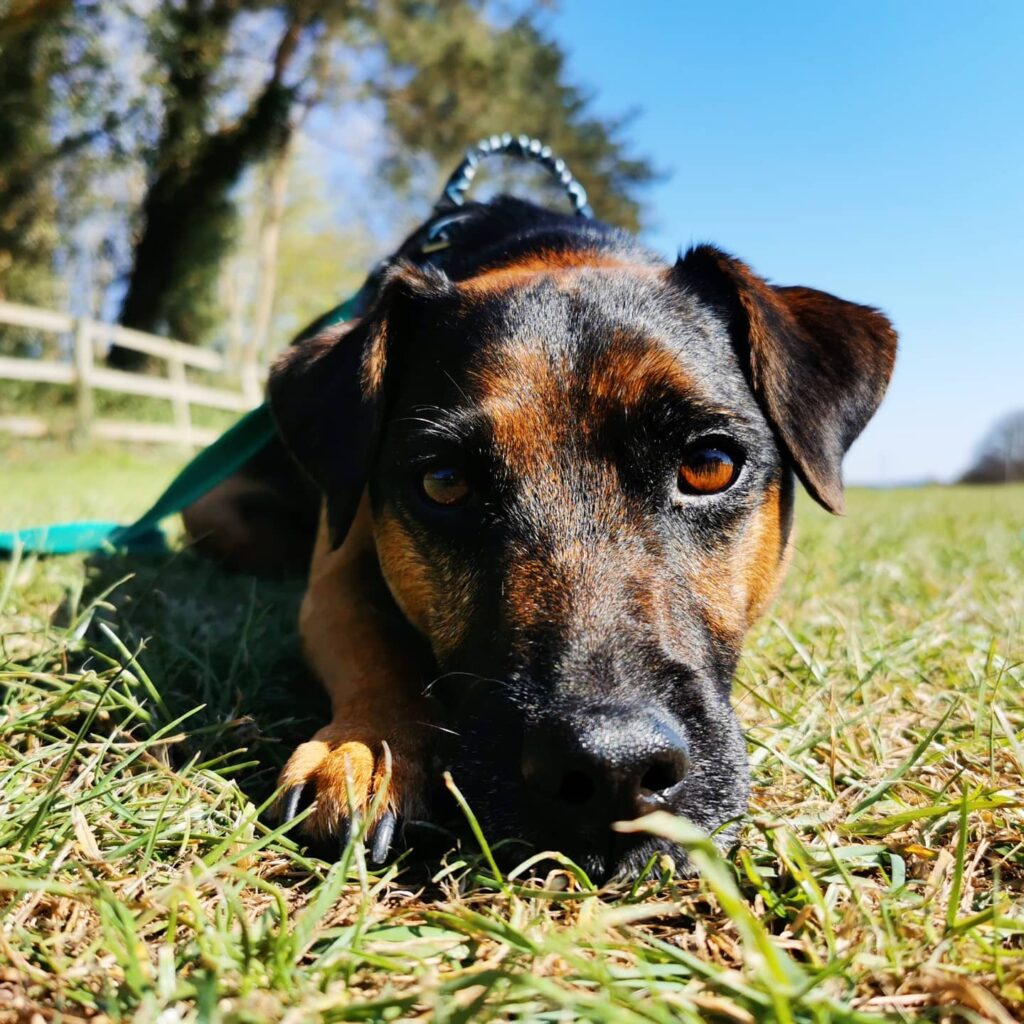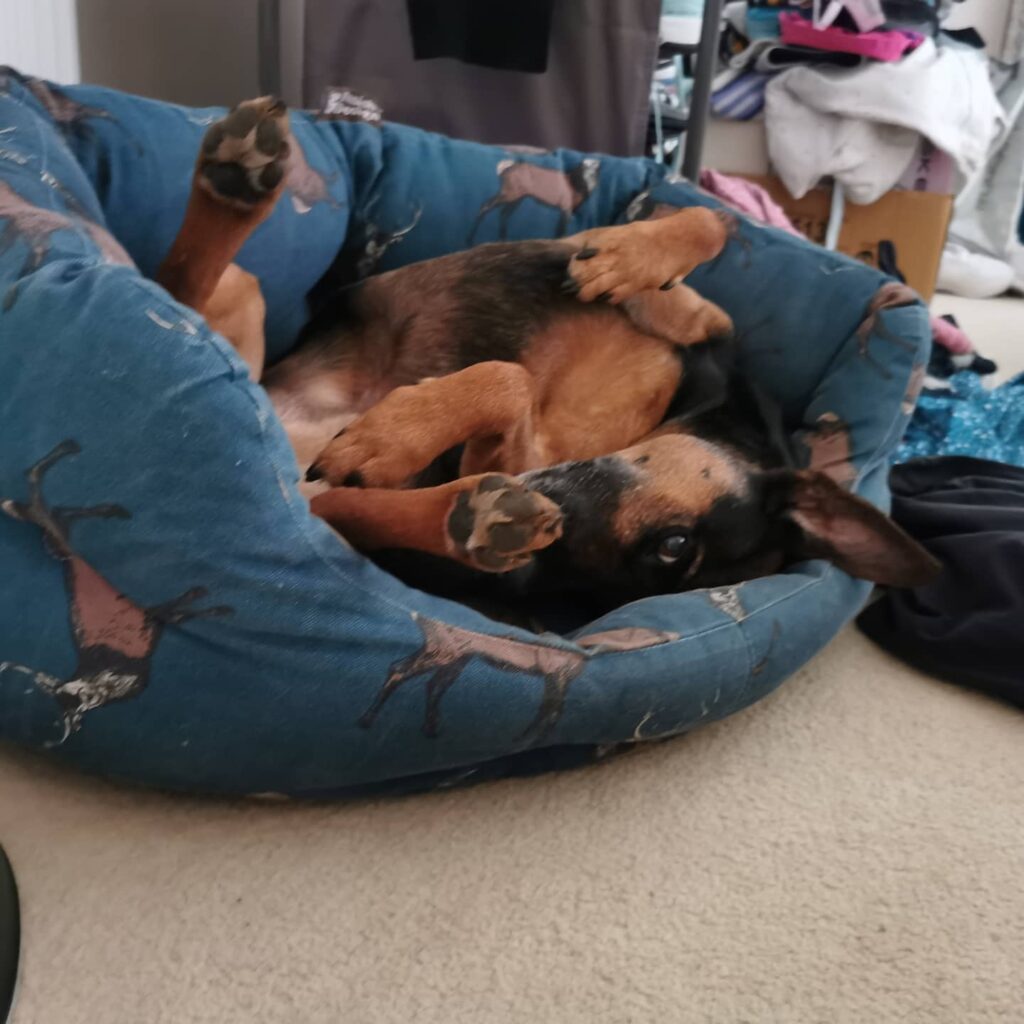Whenever we work on a behaviour, we’re pretty focused on what we’re reinforcing. Often so much so that it can lead to training paralysis, especially when it comes to a behaviour we may not want to reinforce. If we respond to our dogs with cues, eye contact or attention upon them displaying an undesirable behaviour that can constitute reinforcement. Feedback is information for all animals and information is reinforcing.

So, how then do we get around the problem of not reinforcing an undesirable behaviour when the undesirable behaviour has already occurred, or is occurring? Well, the most obvious answer is prevent said undesirable behaviour where possible. However, life isn’t always that easy and there will be a time when an undesirable behaviour crops up that you’ve not had in that specific context before, and you didn’t know to prevent it happening because you didn’t know it was coming. This is really common when first training a new behaviour. For the purposes of this post, I’m not going to discuss problems arising in training as these can be dealt with or eliminated with the use of effective training plans which is another topic for another day. I’m going to be focusing on the real-life scenarios where you find yourself in an ‘oh crap’ moment because your dog is doing something, and you realise that actually you don’t want them doing it but the time for prevention has long gone.
The example I’m going to talk you through is Pumba whining/grumbling at me when he’s behind me whilst I’m sat at my desk. In the specific context this happened in, I honestly wasn’t sure what he wanted. He’d had a walk and didn’t need the toilet. I suspected he wanted his lunch as typically I had gotten way too into a different dog related task at my desk and had simply forgotten the time and slightly overshot when I should have fed the dogs.
In this context, I didn’t want to reinforce the noise Pumba was making, it’s irritating and I don’t wish for him to develop the habit of grumbling at me whenever he wants something whilst I’m at my desk. My options at this point were to ignore Pumba until the behaviour of making noise underwent extinction, or to get up and try feeding him and see if that made the grumbling go away. I personally didn’t want to put the behaviour of grumbling and whining through extinction because extinction breeds frustration and the original behaviour on display was occurring as a result of frustration – namely Pumba saying ‘Hey lady, lunch please!’ If I added more frustration to that, I’m going to make the grumbling worse and there’s the risk that I might reinforce it by some change in my body posture that Pumba is paying attention to and finds reinforcing but I am totally unaware of.

If, by attempting to put the grumbling through extinction, there is a strong chance I may accidentally reinforce the grumbling, then actually the most effective response to Pumba’s behaviour is to get up and feed him and see if that does the job. Yes, I’d be reinforcing the behaviour by doing this. But, I risk doing that with the alternative as well. If by doing the alternative, I create an extinction burst as a result of putting the grumbling through extinction and the grumbling becomes a bark which I then reinforce with some natural wince response to a loud noise in a small space, then not only have I reinforced the whining and grumbling but I’ve also just reinforced the bark! This can develop into a cycle where I ignore the grumbling, ignore a bark (perhaps minus the wince as I’m expecting it this time) and I successfully ignore Pumba without reinforcing him until he scratches the back of the chair which makes me jump. Uh-oh, I’ve just reinforced all of those stages again and the behaviour has escalated further. Gradually, Pumba’s escalation of behaviour will become harder and harder and I’ll end up reinforcing him for all of those behaviours.
On the other hand, if I simply jump up and feed Pumba as soon as I suspect he’s hungry, then I’ve simply reinforced that first grumble and I can make sure that I go back to preventing that behaviour from occurring in the future. Yes, I’ve reinforced a behaviour I probably don’t want long term, but if I know I can prevent it in the future and it’s the lesser of two evils, then it’s not all about the behaviour you’ve reinforced at that one point in time. It’s about the bigger picture and whether or not it was the appropriate response for that situation based on the motivation for the behaviours involved and looking at the consequences over a longer period of time rather than being stuck in the moment.
What you reinforce is important but sometimes in daily life we have to reinforce the lesser of two evils and set ourselves up for prevention next time. Have you ever gotten yourself into a training slump by worrying about reinforcing the ‘wrong’ behaviour? Let me know about it in the comments!
